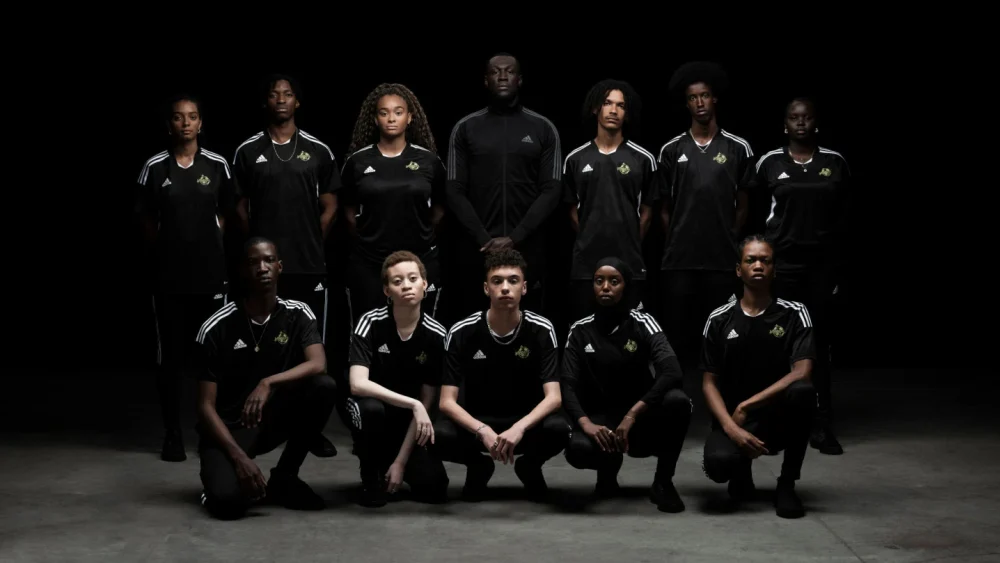
The Breaking Barriers Project: Creating a Roadmap for Change in Women’s Coaching
When it comes to coaching girls, we’re still far behind the game. Find out how the adidas Breaking Barriers Project is looking to turn the tables.

From research to training practices, we know that there’s a lot of work to be done when it comes to supporting girls and women in sports reach their maximum potential. With that in mind, we focused the second edition of the adidas Breaking Barriers Project research paper on just that. Empowering Her Game: The Importance of Girl-Centered Coaching highlights how coaches face unique challenges when it comes to mentoring girls, including balancing empathy and understanding, upskilling, building confidence, and the personal barriers women coaches face in their own journeys.
We spoke with Helen Nkwocha, a football coach and former athlete who was a key informant for the paper, as well as Marielle Schweickart, Learn Director at Women Win and co-author of the research paper, to discuss the state of coaching, the inspiration for the paper, and how we can create a better future for girls going forward.
Challenges and rewards: how coaching today still isn’t equal
As Helen Nkwocha started to wrap up her career as an athlete, it was one of her coaches who suggested she look into becoming a coach herself. The more she took on, the more she enjoyed the role, eventually transitioning into coaching as her full-time career.
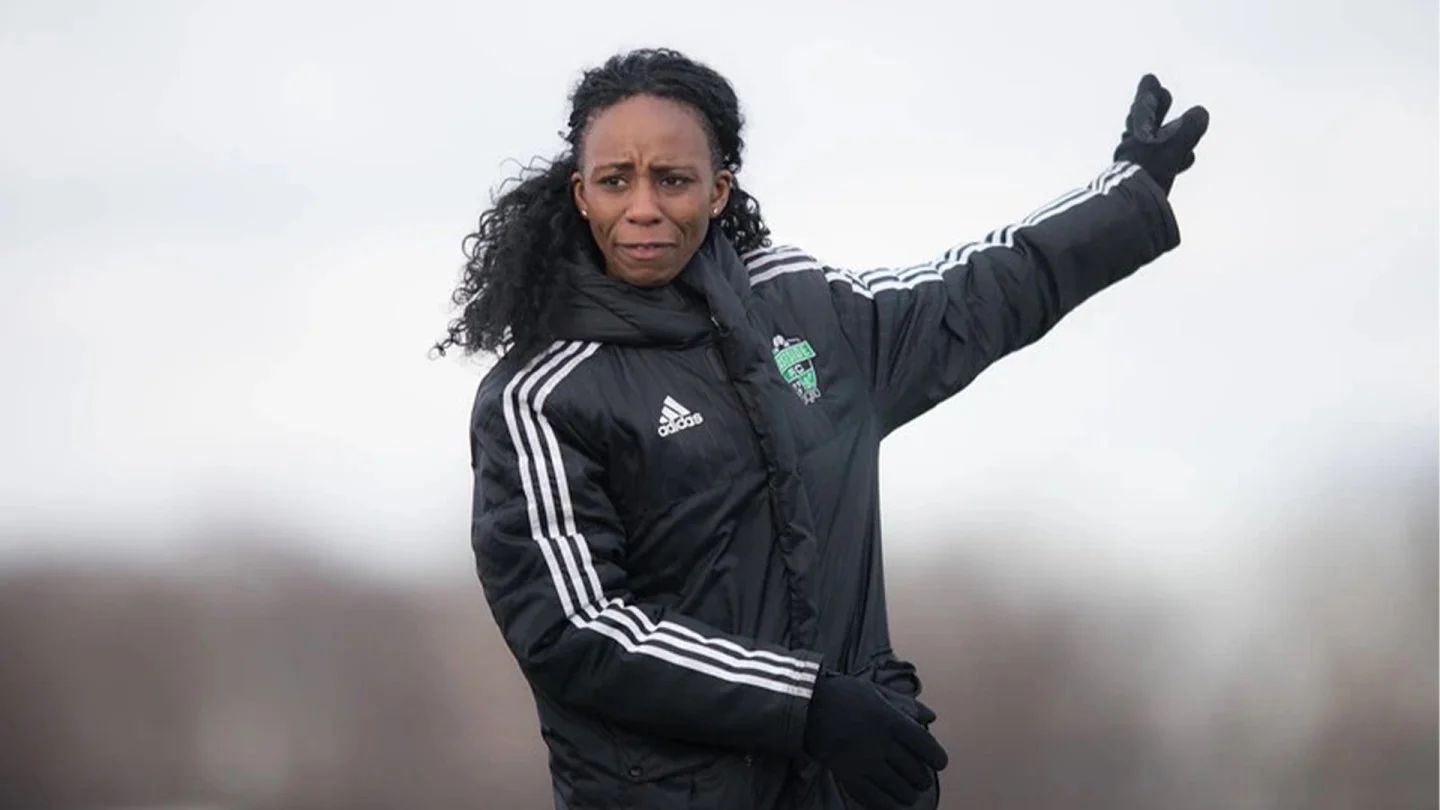 Helen Nkwocha stayed true to her ambition and is a role model for future coaches.
Helen Nkwocha stayed true to her ambition and is a role model for future coaches.
Nkwocha’s resume is impressive — she has experience on three continents with a number of elite teams, often as the only woman in the room. Her education backs up her work as well — she was placed in a program in England for future high-level women coaches, attending regular workshops and having access to some of the latest, cutting-edge research. Her lofty ambitions match her drive; as a former athlete, she’s still very competitive, with goals to get her UEFA pro license and work at even higher levels, along with having an impact on the information, framework, and insights used for coaching.
Even with all these qualifications and experience, Nkwocha’s journey has not been easy. The Empowering Her Game paper highlighted many of the obstacles women face in coaching — sentiments echoed by Nkwocha. After moving to China to coach and guide elite athletes into the national team — despite having one of the most successful records in the organization — she was moved out of her position because the leadership didn’t envision a woman in her role. At another club, she was immediately let go after informing leadership she’d have to leave at the end of the season, unable to even say goodbye to the athletes she’d been coaching. With many clubs, she noted that coaches are at the mercy of whatever mentality drives the club, which leads to mixed experiences.
"I realized I was being judged differently, so I had to change, even though the men coaches were not being evaluated or criticized in the same way."
Nkwocha also found that the research and attention given to coaches varies drastically by country. Having completed much of her training in England, she spoke highly of the programs there, but noted that training is much more costly, and the quality is not as high where she lives now, in the United States.
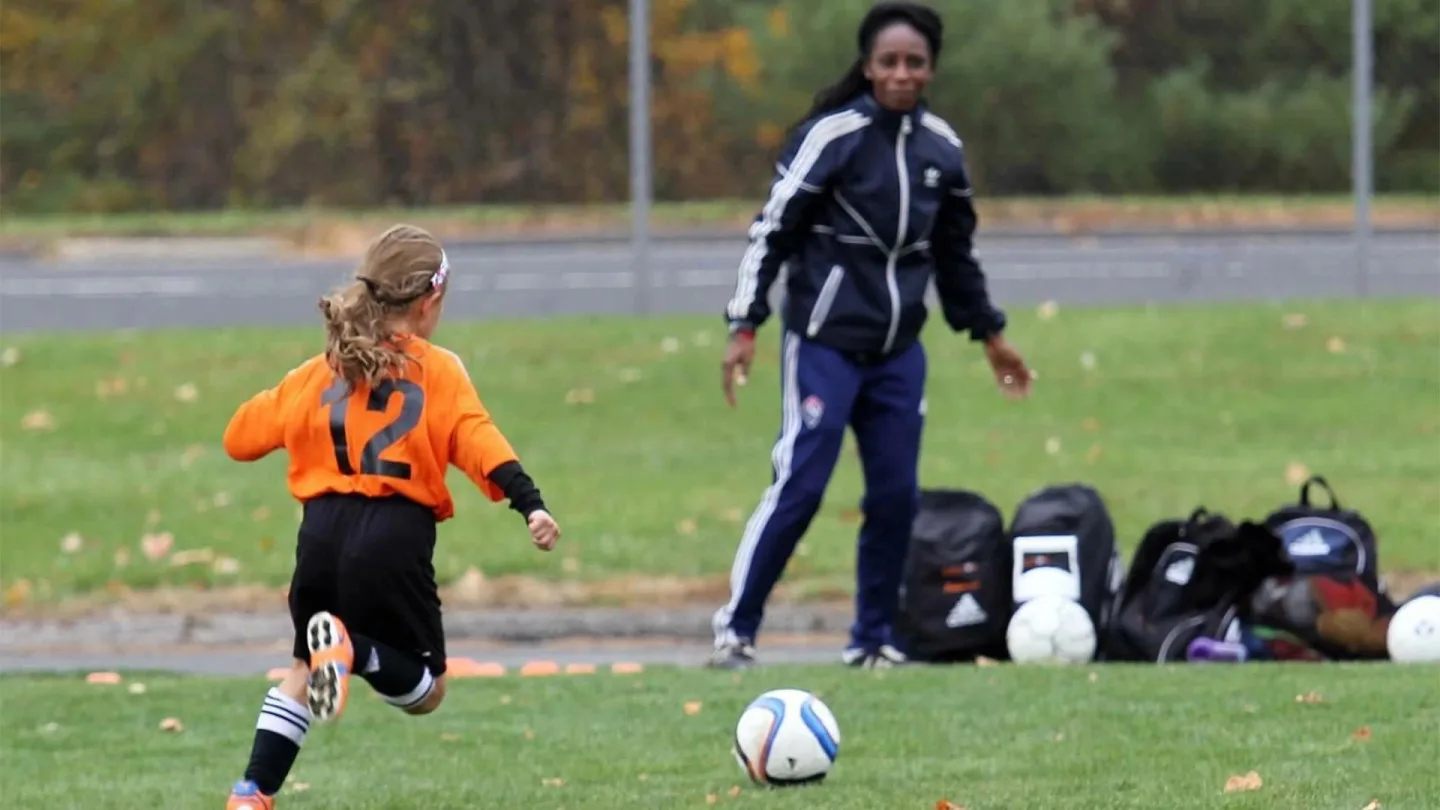 Coaching is about building relationships and developing your team.
Coaching is about building relationships and developing your team.
"Some of my proudest moments have been noticing the players themselves and how their behaviors change around me once they see me stand up for them and begin to trust me."
Despite these challenges, Nkwocha loves what she does. She spoke of connecting with athletes who were inspired to continue forward in their careers or become coaches, and the deep gratification she receives from seeing her athletes succeed. She’s noticed that standing up for her players can transform their behavior, building confidence and increased success in their athletic endeavors.
Diving into the research
As Marielle Schweickart set out to define the topic of the second research paper for the adidas Breaking Barriers Project, she unfortunately saw the same negative trends Nkwocha pointed out.
As she spoke with girls who reflected on why they dropped out of sports, they often cited difficult experiences they’d had with coaches. Schweickart and her co-writer, Catherine Schulter, saw the opportunity to look at the coaching and administrative side of sports to identify gaps in research, training, and approach.
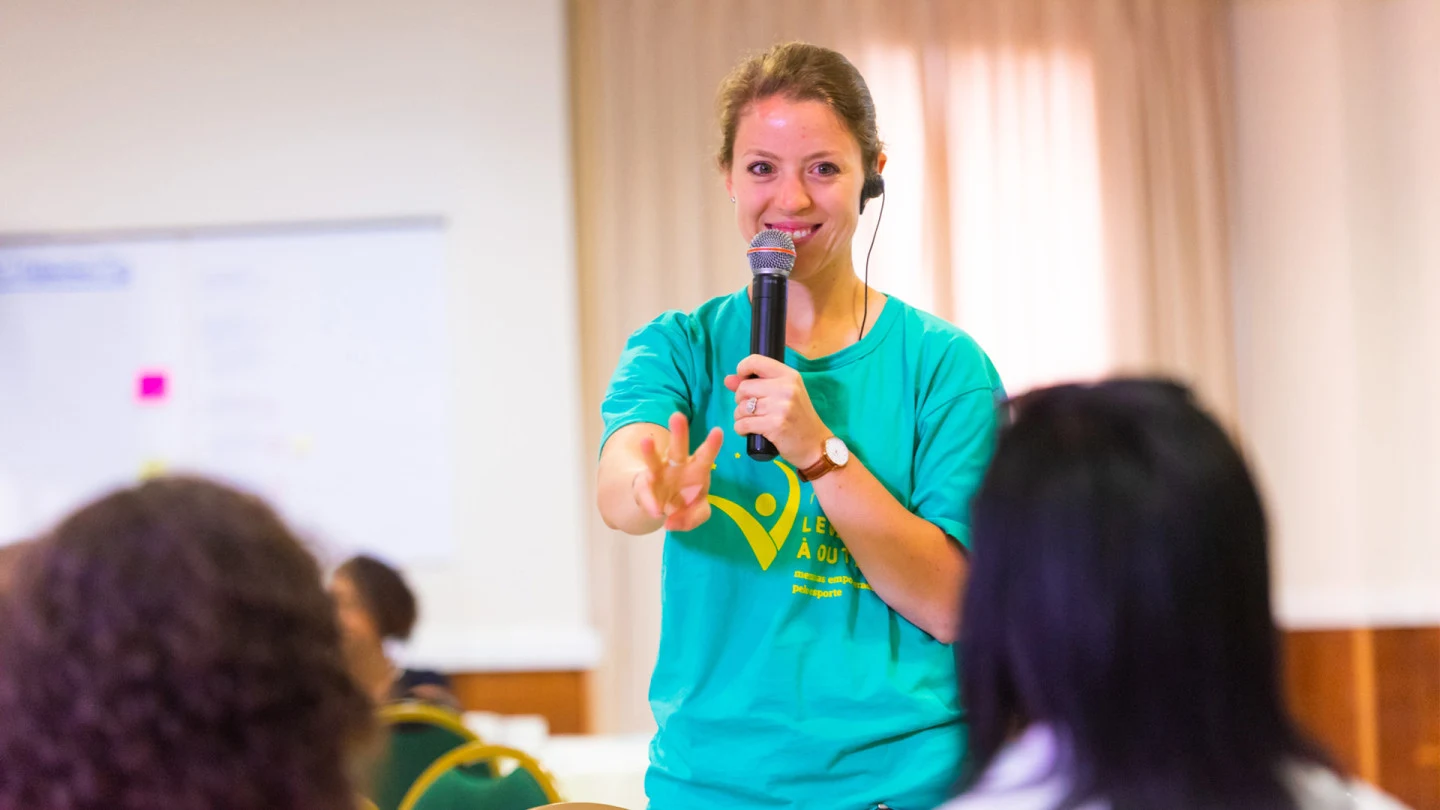 Marielle is a co-writer of the Empowering Her Game: The Importance of Girl-Centered Coaching research paper.
Marielle is a co-writer of the Empowering Her Game: The Importance of Girl-Centered Coaching research paper.
"We wanted to find out the ‘why’ behind the perspectives on coaches that were so negative, to figure out the reasons this was happening and how we could help prevent it in the future."
What they found was sadly unsurprising — as the history of sports has been dominated by men, much of what they saw and heard reflected this power imbalance. Even defining root causes was a challenge: many of the communication barriers and biases were intertwined with existing social and cultural structures. Ultimately, Schweickart said their goal was to better understand how coaches can counterbalance these impacts and influences in girls’ lives, changing their thoughts from a young age and providing them with safer spaces on the pitch. What they found proved coaches do indeed have a significant impact — 59% of players said it was their coach who motivated them to carry on playing sports.
"Elements like fun and trust can serve such a big role in the unity of the team — there are lots of variables coaches need to understand so they can better understand girls when they come to the pitch."
Alongside the research, Schweickart wanted to provide guidelines for coaches and organizations — after all, while it is useful to define the problems, many clubs, and organizations are looking for a roadmap to do better in the future. As a part of the research, Schweickart asked coaches about more inclusive styles and what they’d do to help craft recommendations for moving forward. This helped define some of the guidelines provided in the paper, such as developing policies for coaching success, challenging gender norms in organizations through conversations, and directing funds toward these goals.
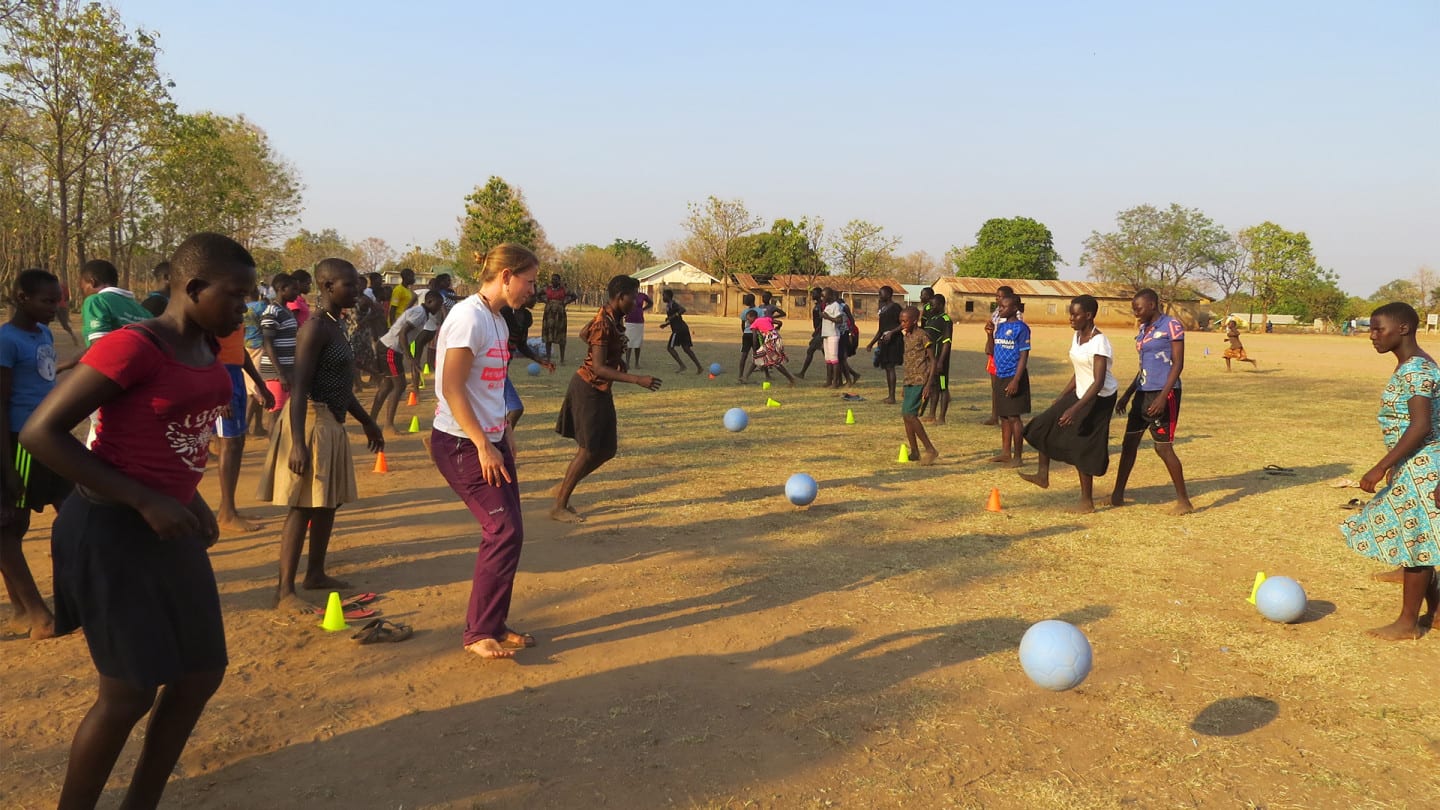 A community initiative in full swing, leveling the playing field for women and girls in sport.
A community initiative in full swing, leveling the playing field for women and girls in sport.
The roadmap for change
When speaking of the future, both Nkwocha and Schweickart talked about media representation. Currently, only 4% of current global media coverage is dedicated to women’s sports (Unesco. (2018, March 9). Gender Equality In Sports Media. Unesco), even though 40% of sports participants are women. Nkwocha highlighted the importance of having women pundits showcase their expertise — not just for women’s sports, but sports in general. Schweickart echoed the sentiments, citing the FIFA Women’s World Cup 2023™ as a key example of seeing the ripple effects of women’s success in leadership roles, but noted how sports organizations still need to take note. Organizations that train coaches must revise what it means to be a good coach and step away from a solely men-focused leadership style.
While the barriers are still there — ready to be broken — both women agreed that there is an opportunity for change, and we see progress every day. One of the biggest goals for the path forward is for change to start at a grassroots level. The ambitions are high, but so are the stakes — and we believe that impossible is nothing.

EMPOWERING HER GAME: THE IMPORTANCE OF GIRL-CENTERED COACHING
Learn more and start creating change in your community



